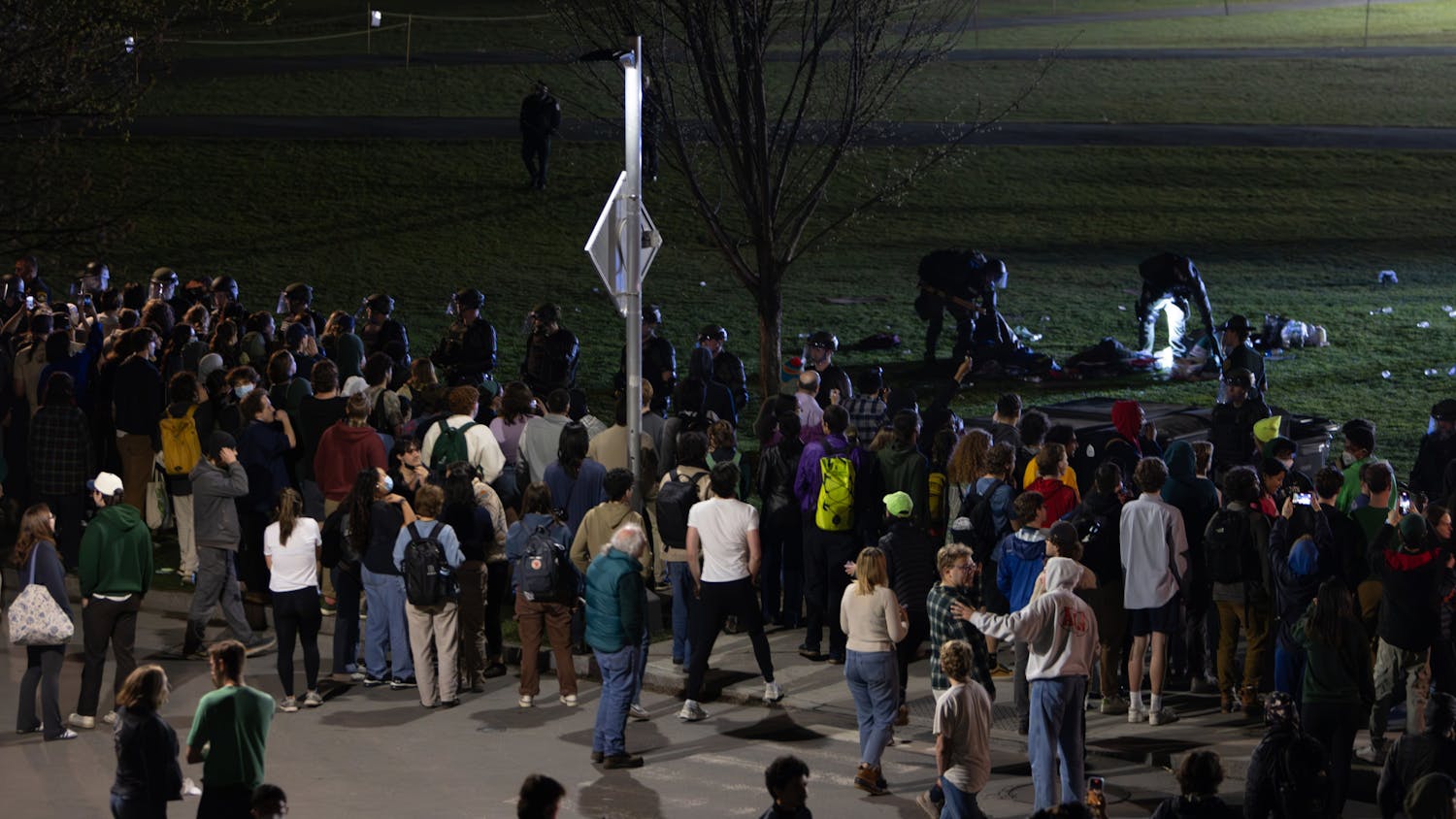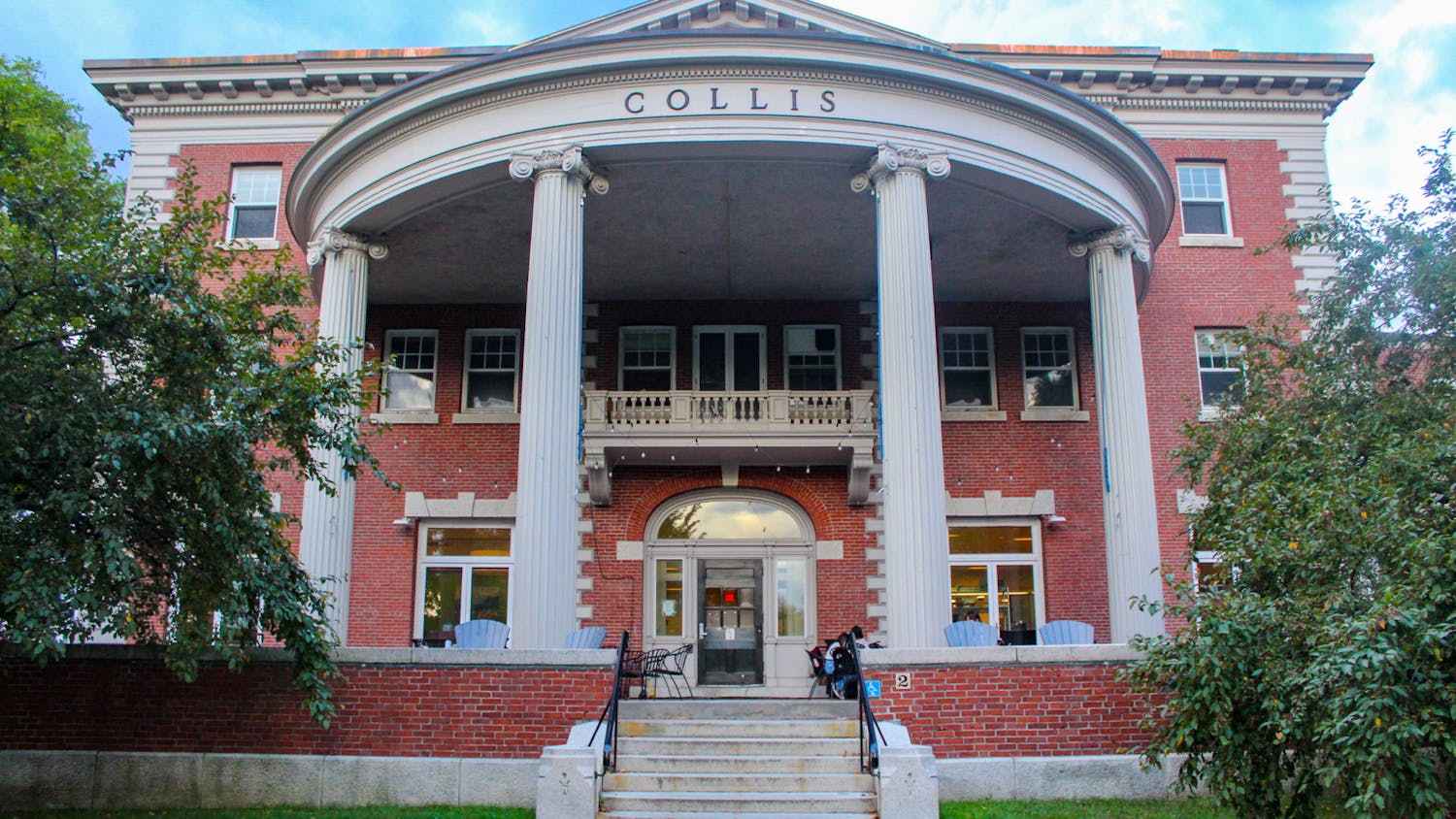Presenters discussed Dartmouth’s efforts to combat sexual assault at Tuesday’s “Moving Dartmouth Forward” sessions, focusing on the forthcoming Center for Community Action and Prevention and the proposed changes to the College’s disciplinary policy for sexual assault. Around 30 people attended the noon session and 11 people attended the evening session, with few students at the first event and none at the second.
Dean of the College Charlotte Johnson, who said the session’s goal was to reach a cross section of campus, noted that attendance was light.
Johnson started the discussion by providing context about sexual assault nationwide, mentioning President Barack Obama and Vice President Joe Biden’s effort to spearhead discussion on the issue and Hanlon’s attendance at a February meeting with Biden in Washington, D.C..
Next week, Johnson will present before the White House Task Force on Dartmouth’s behalf, she said.
Highlighting four methods of addressing sexual assault — prevention, response and support, education and accountability and judicial policy — Johnson discussed the College’s efforts to support sexual assault survivors. Recent changes include the creation of a second sexual assault awareness program coordinator position and a sexual assault response team program, which provides survivors with access to campus resources as they recover.
She also pointed to the Dartmouth Bystander Initiative as a priority, noting that research has shown bystander programs to be one of the most effective tools to prevent sexual assault on college campuses.
Johnson also discussed plans for CCAP, saying she hopes it will centralize prevention efforts and inspire “broad-based mobilization” of campus communities to fight sexual violence. The center, announced in February, will open its doors in the fall.
“We want to make sure that, for all who want to get involved or think they want to get involved, there’s a touch point at the center,” Johnson said.
College General Counsel Bob Donin spoke about the recent disciplinary policy proposal, which he said was submitted because campus sexual assault is underreported.
Under the new proposal, a trained, external investigator will interview everyone involved in a case before submitting a report. If the investigator finds an offender guilty, a sanctioning committee consisting of the Title IX coordinator, the judicial affairs director and an appropriate dean, will determine the appropriate sanction, not the Committee on Standards.
Other schools have adopted the investigator model, but it remains too new to be tested, Donin said.
Judicial affairs director Leigh Remy then opened the floor to audience members, who asked about the investigator model, current sexual assault education efforts and support for students accused of sexual assault.
In response to a question regarding education about sexual assault at the College, Johnson said DBI overviews will complement educational programs in place for the Class of 2018. The College must also reinforce these trainings later in students’ time at Dartmouth, Johnson said.
Audience members recommended that the policy define the term “coercion” and include the concept of “persistence,” when a perpetrator does not accept refusals.
Johnson said in an interview that Tuesday’s sessions sought to educate community members on College action against sexual assault and to solicit community feedback on the new policy proposal.
The event differed from other talks on sexual assault such as the recent Student and Presidential Committee on Sexual Assault symposium, she said, because it was shorter, more discussion-based and followed a question-and-answer format.
“It was thoughtful feedback,” Johnson said. “It was obvious that people took time to read the policy. The folks who were here were engaged and had good questions, and that will help us as we look at all the feedback and refine the policy before its summer implementation.”
The last official day for community members to submit feedback on the policy proposal was April 14, and Johnson said the current plan is to review the feedback, make changes and implement the policy by the start of summer term.
“I’m glad the administration is taking diverse means of getting feedback,” said Murylo Batista ’15, who attended Tuesday’s session.
Not enough contextual information was included in the session, Batista said, adding that he thought presenters seemed unprepared when questions were asked about sexual assault education.
“I think that it’s really important for the administration to be taking such a strong stance on the issue of sexual assault,” government professor and Latin American, Latino and Caribbean Studies chair Lisa Baldez said. “It’s a very difficult issue, but I think it’s really important to see the administration prioritizing it.”
Batista said he was disappointed that more students did not attend.
Josiah Proietti, East Wheelock community director, said the conversation centered almost completely on adjudication rather than the other components of sexual assault, but stressed that he did not criticize this choice.
“I mostly came away feeling appreciative of the fact that the conversation is being brought to the whole community stage,” Proietti said, “and that the resources that are being allocated are pretty substantial.”
The article has been revised to reflect the following correction:
Correction appended: April 23, 2014
The online version of this article previously included a photo that was taken at a prior Moving Dartmouth Forward session, and to avoid ambiguity, the photo has been removed.



